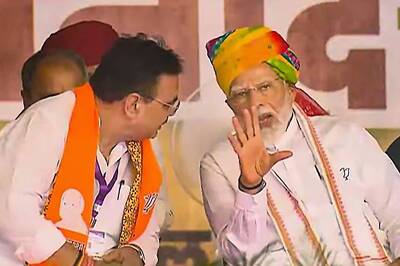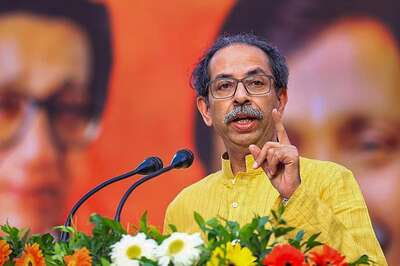
views
In what seems to be sheer negligence on the part of Mumbai Police or the medical board which conducted autopsy on late Bollywood star Sushant Singh Rajput, the all important viscera extracted from the body was not preserved properly.
The viscera received by the Department of Forensic Medicine and Toxicology at the All India Institute of Medical Sciences (AIIMS) is “of very less quantity and degenerated”, highly placed sources in AIIMS revealed to IANS.
Till late Friday evening, the viscera, which holds the key in ascertaining the cause of death of Sushant Singh Rajput, was being tested at the forensic department of AIIMS in New Delhi.
“The viscera has degenerated. It makes chemical and toxicological analysis really difficult,” sources added.
While several media outlets have questioned the Mumbai Police’s stand that the actor had died by suicide, the viscera analysis can now unravel the mystery shrouding the actor’s death.
To confirm if Sushant died of suspected poisoning or drug overdose, the viscera analysis has become the most crucial test for the Central Bureau of Investigation (CBI) in its medico-legal investigation into the death of the Bollywood star.
After conducting the autopsy on June 15, the medical board comprising five doctors of the Cooper Hospital in Mumbai cited “hanging” as the probable cause of death of Sushant.
However, they still preserved the viscera for further investigation. The board included three medical officers of Cooper Postmortem Centre — Sandeep Ingale, Pravin Khandare and Ganesh Patil — and two associate professors of forensic medicine in Mumbai.
The viscera, which usually contains internal parts of the body including liver, pancreas and intestine, was preserved in a bottle and handed over to the police. Later the viscera sample was sent for testing to the forensic science laboratories to rule out poisoning or intoxication in the event of death.
Following instructions from the Supreme Court, the investigation of the case was handed over to the CBI.
The Mumbai Police had questioned several witnesses, conducted forensic probes but did not test the crucial viscera sample. Subsequently, on the request of the CBI, leading forensic experts of AIIMS were asked to examine the lapses in the initial investigations, primarily the forensic aspects. The experts were also given the viscera sample.
The AIIMS team led by one of the top forensic experts of India, Sudhir Gupta, was asked to find out any tampering of evidence on the scene of crime or omission of any forensic sign by the Mumbai Police or the panel of doctors which conducted the post-mortem.
The AIIMS experts were flown from Delhi to Mumbai to make on the spot assessment of the sequence of events and scrutinise the documents related to forensics.
By early next week, AIIMS forensic experts and CBI officials will hold conclusive discussion on the cause of death of Sushant Singh Rajput, who was reportedly found hanging in the bedroom of his duplex flat in Bandra on June 14.
Meanwhile, a senior IPS officer in Mumbai Police said that all possible efforts were made to preserve all forensic samples, documentary evidence and other materials related to the case.
“We have been investigating several sensitive and high profile cases. Mumbai Police are thoroughly professional as far as quality of investigation is concerned,” the officer said.




















Comments
0 comment